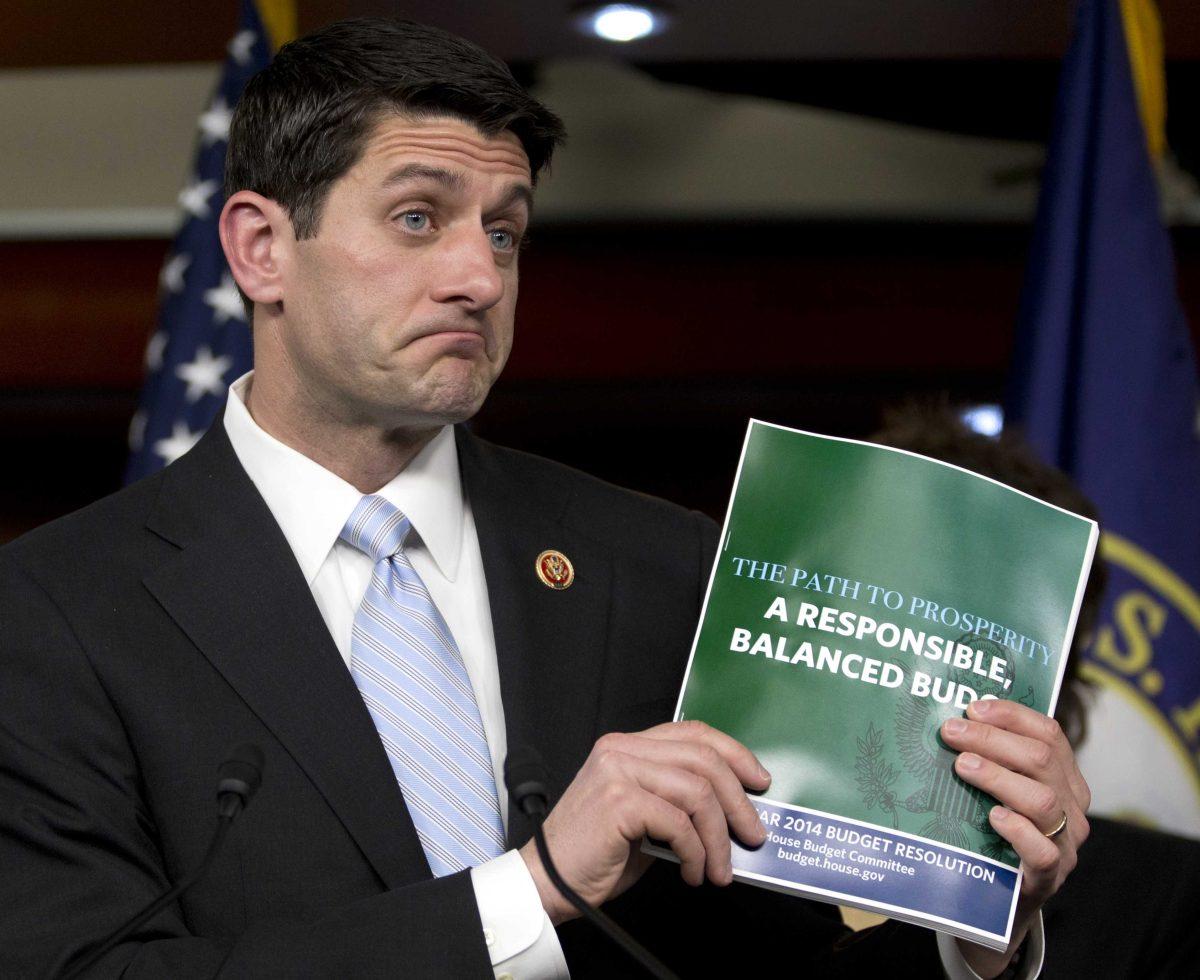Here is House Budget Chairman Paul Ryan’s new budget proposal in one sentence: Implement the same ideas that he and Mitt Romney campaigned on for the presidency in 2012.
It contains the same misguided and destructive budget policies Americans cast their ballots against four months ago — imposing huge burdens on seniors, the poor and children, while massively slashing taxes for the rich.
Specifically, Ryan’s plan would cut taxes by approximately $4.6 trillion, with most of those tax cuts helping those that earn $200,000 or more in annual income, according to the Economic Policy Institute.
His plan would cut projected spending growth over the next decade by roughly $5 trillion, primarily focusing on Medicare, Medicaid and food assistance programs.
In effect, Ryan’s proposals are Robin Hood in reverse, as it is increasingly clear he intends to balance our national deficit by disproportionately burdening the poor.
While we do indeed have a $1 trillion deficit, the question is: What’s the appropriate type of action we should take from this figure?
What Ryan and Republicans want you to believe is that our current deficit warrants immediate action, as they believe it is indicative of America’s unsustainable fiscal position.
Mostly, they scaremonger about the possibility of an “imminent” debt crisis similar to that of Greece, although they have been predicting this exact type of scenario for years and it keeps failing to come to fruition.
In fact, the U.S. is experiencing the complete opposite of a debt crisis.
The yields on government bonds are at historic lows, which is essentially the cost of borrowing money. This is a result of both domestic and foreign investors flooding into the market to purchase our debt.
Obviously, this would not be the case if people were actually concerned about the full faith and credit of the United States.
Ryan and Republicans realize this, so they’re marching to the beat of a different drum: Now, they use the deficit to argue that we can’t afford essential government programs like Social Security, Medicare and Medicaid.
This, as I mentioned earlier, completely corresponds with the Ryan Budget, as the bulk of his savings comes from slashing entitlement programs.
It’s important to understand how wrong this notion is.
The U.S. has a long-term budget problem as a result of an aging society and the skyrocketing cost of healthcare.
However, the current deficit is not at all a consequence of our aforementioned problem. More importantly, it has nothing to with the viability of our entitlement programs.
Rather, the current deficit mainly reflects how terrible our unemployment situation is.
With massive unemployment rates since the recession, the U.S. has had to temporarily increase spending because more people qualify for unemployment insurance and other governmental programs like food stamps and Medicaid.
On top of this, the newly unemployed are no longer paying payroll, federal or state income taxes, so we have far less revenue coming in.
In reality, what we need to fix the deficit is a solid economic recovery that puts more Americans back to work.
Unfortunately, however, Ryan’s plan will do nothing of the sort.
The considerable spending cuts contained in his plan will undoubtedly place a huge damper on economic growth, possibly sending us back into a recession.
What Ryan’s budget intends to do is fundamentally change the role government plays in America, which is exactly what he and Romney would have tried to accomplish had they succeeded in the 2012 presidential election.
But they didn’t. Americans voted for the other guy, because they obviously thought he had better ideas.
So when hearing talk of Ryan’s budget plan, you should take it for what it is: yet another deceitful bid by the Republican Party to shift public opinion into getting rid of essential government programs that protect poor and middle-class Americans.
Jay Meyers is a 20-year-old economics sophomore from Shreveport.





